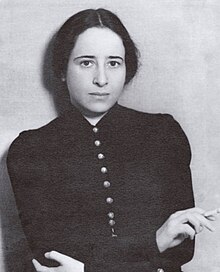
German agnostics
Agnosticism is the view or belief that the existence of God, of the divine or the supernatural is unknown or unknowable. Another definition provided is the view that "human reason is incapable of providing sufficient rational grounds to justify either the belief that God exists or the belief that God does not exist."The English biologist Thomas Henry Huxley coined the word agnostic in 1869, and said "It simply means that a man shall not say he knows or believes that which he has no scientific grounds for professing to know or believe." Earlier thinkers, however, had written works that promoted agnostic points of view, such as Sanjaya Belatthaputta, a 5th-century BCE Indian philosopher who expressed agnosticism about any afterlife; and Protagoras, a 5th-century BCE Greek philosopher who expressed agnosticism about the existence of "the gods".
3 episodes
Episodes in this category also belong to the following categories:
Albert Einstein
Melvyn Bragg and guests discuss Einstein's impact on the world of physics after his 'miraculous year' in 1905 and why he went on to become so very famous after World War One.
14 September 2023
Featuring: Richard Staley, Diana Kormos Buchwald, John Heilbron
ScienceMembers of the Royal Netherlands Academy of Arts and SciencesPhilosophy of science20th-century American male writersAmerican male non-fiction writersStateless peopleNaturalised citizens of Austria20th-century American inventors, Members of the United States National Academy of SciencesAmerican humanistsNobel laureates in PhysicsRecipients of Franklin MedalJewish German physicists, Jewish scientistsPhilosophers of mathematicsJewish agnosticsGerman agnosticsGerman Ashkenazi JewsAmerican Ashkenazi Jews, American Zionists, American agnostics, German Zionists20th-century American engineersAcademic staff of ETH ZurichJewish socialistsAnti-nationalistsEuropean democratic socialistsNaturalized citizens of the United StatesPantheistsAlbert EinsteinMembers of the American Philosophical SocietyWinners of the Max Planck MedalJewish emigrants from Nazi Germany to the United StatesPhilosophers of scienceGerman male non-fiction writersHannah Arendt
Melvyn Bragg and guests discuss the ideas of Hannah Arendt who examined totalitarianism and politics and, when covering the Eichmann trial, explored 'the banality of evil'.
2 February 2017
Featuring: Lyndsey Stonebridge, Frisbee Sheffield, Robert Eaglestone
PhilosophyPrinceton University facultyGerman political philosophersExistentialists20th-century American women writersIntellectual historians, University of Chicago facultyUniversity of Marburg alumniJewish existentialistsWomen religious writersPhilosophers of lawMembers of the American Academy of Arts and LettersSocial philosophersPhilosophy writersPhilosophers of technologyAmerican political philosophers20th-century German women writersGerman women philosophersFellows of the American Academy of Arts and SciencesPhilosophers of cultureThe New School faculty20th-century American essayistsExilliteratur writersJewish agnosticsGerman agnosticsGerman Ashkenazi JewsAmerican Ashkenazi Jews, American Zionists, American agnostics, German Zionists20th-century German philosophers20th-century American philosophers20th-century German non-fiction writersGerman ethicists, German philosophers of educationHeidelberg University alumniPolitical philosophersJewish emigrants from Nazi Germany to the United StatesPhilosophers of scienceScholars of antisemitismPhilosophers of historyAmerican philosophers of educationKant's Copernican Revolution
Melvyn Bragg and guests discuss Kant's ideas on how the world depends on us, on the limits of human knowledge and why we are bound to ask questions we cannot answer.
3 June 2021
Featuring: Fiona Hughes, Anil Gomes, John Callanan
PhilosophyGerman philosophers of artNatural law ethicistsGerman philosophers of scienceGerman political philosophersMetaphilosophersPhilosophers of social sciencePhilosophers of warGerman Lutherans18th-century philosophersTheoretical historiansGerman nationalists19th-century German philosophersTheorists on Western civilizationPhilosophers of literatureGerman idealistsAge of EnlightenmentPhilosophers of logicLogiciansPhilosophers of lawPhilosophers of sexuality18th-century German writersPhilosophy writersRationalists18th-century German male writersKantianismGerman philosophers of mind, German philosophers of religionWriters about religion and science18th-century German philosophers, 18th-century essayists19th-century German male writers19th-century Prussian peopleHumor researchersGerman philosophers of culture19th-century German essayistsPeople of the Age of EnlightenmentGerman agnosticsGerman male essayistsOntologistsGerman ethicists, German philosophers of educationLecturersMembers of the Prussian Academy of SciencesIdealistsNatural philosophersEnlightenment philosophersGerman epistemologistsWriters about activism and social change19th-century German non-fiction writersGerman philosophers of historyGerman male non-fiction writersGerman logicians, Kantian philosophers


